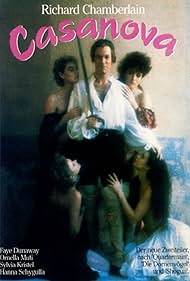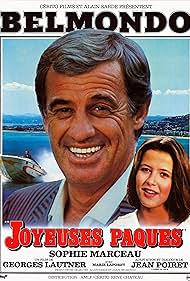Lady J Soundtrack (2018)

Buy on Amazon Play and download Soundtracks
Lady J
Lady J
Madame de Joncquières
Mademoiselle de Joncquières
Mademoiselle de Joncquières
Der Preis der Versuchung
Synopsis
The rich widow Madame de La Pommeraye enjoys life on her country estate near Paris. She does not believe in love, only in true friendship - a conviction that the Marquis des Arcis wants to break. He has been a guest at her country estate for several months and is determined to conquer Madame de La Pommeraye. The Marquis' countless flatteries soften the widow. Warned of the countless love affairs the Marquis has already had, she nevertheless becomes involved with him.
The days at their country estate pass harmoniously. But little by little the Marquis loses interest in Madame de La Pommeraye, until he confesses to her that he has lost all passion for her. Hurt by his infidelity, Madame de La Pommeraye decides to take revenge on him. She knows of the marquis' weaknesses and introduces her former lover to the young Mademoiselle de Joncquières, who earns her living as a prostitute.
One look at her beautiful face is enough for the Marquis to make it his goal to conquer the young Mademoiselle's heart - without any knowledge of her past.
Download and play the Soundtrack list
| Play | Title | Artist |
|---|---|---|
|
Lady J
|
||
|
L'Arlésienne - Suite No. 2: Menuet
|
||
|
Minuets I and II in A Major and A Minor
|
Claude Balbastre:
Writer
|
|
|
Minuet in G Major (BWV Anh. 114)
|
||
|
Minuet in G Minor (BWV Anh. 115)
|
||
|
Concerto in C Major for Harp and Orchestra
|
||
|
Water Music - Suite No. 3 HWV 350 - Gigue I & II
|
||
|
Concerto Op. 3 No. 2 in G Minor RV 578
|
||
|
Concerto in D Minor RV 566: Allegro Assai
|
||
|
Sonata in C Major K. 159
|
||
|
Concerto No. 1 in D Minor BWV 1052: Allegro
|
||
|
Adagio in C Major BWV 564
|
Johann Sebastian Bach:
Writer
|
|
|
Le quattro stagioni: Concerto Op. 8 No. 3 in F Major RV 293, 'L'autumno': II. Adagio
|
||
|
Le quattro stagioni: Concerto Op. 8 No. 2 in G Minor RV 315, 'L'estate': I. Allegro non molto
|
||
|
Sonata Op. 1 No. 12 in D Minor RV 63, 'La Follia': I. Adagio
|
||













